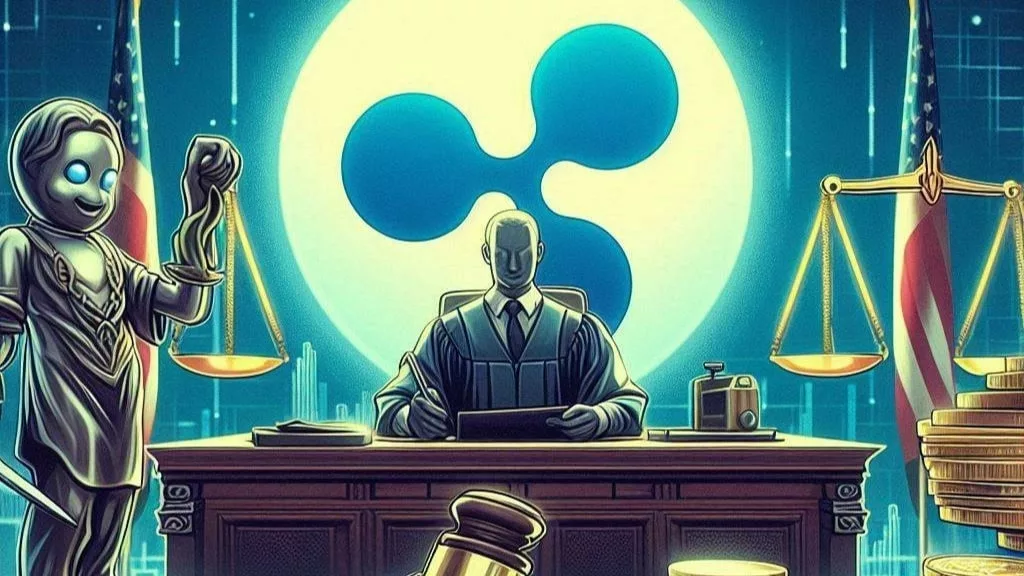
Few legal battles have garnered as much attention and controversy as the ongoing Ripple lawsuit. Recent developments in this case have not only captivated the cryptocurrency community but also raised significant questions about the regulatory framework surrounding digital assets like XRP. Here’s a comprehensive look at the latest updates, their impact on XRP’s market performance, and the potential implications for the broader cryptocurrency landscape.
The Ripple lawsuit, formally known as Zakinov v. Ripple, centers on allegations against Ripple Labs, its subsidiary XRP II, and CEO Brad Garlinghouse. The case, filed in the U.S. District Court for the Northern District of California, has evolved through various legal maneuvers and rulings that have shaped its trajectory.
Recently, Judge Phyllis Hamilton issued a crucial order in the case, granting partial summary judgment in favor of Ripple on federal and state class claims. However, the judge did not dismiss plaintiff Sostack’s individual claim under California law, underscoring the complexity and legal nuances involved.
One of the most significant developments in the Ripple lawsuit came when Judge Hamilton referred the case to Magistrate Judge Robert Illman for potential settlement discussions. This move marks a strategic shift, potentially paving the way for a resolution outside the confines of a full trial. Such a development could have profound implications for Ripple, its stakeholders, and the broader cryptocurrency market.
Central to the Ripple lawsuit is the regulatory status of XRP, the digital asset at the heart of Ripple’s ecosystem. The Securities and Exchange Commission (SEC) has argued that XRP constitutes a security and should be subject to securities laws. This stance has not only fueled legal disputes but also triggered market volatility, impacting XRP’s price and investor sentiment.
Judge Hamilton’s recent rulings and the referral for settlement discussions have not gone unnoticed in the cryptocurrency market. XRP, which experienced heightened volatility in response to legal developments, saw its price fluctuate in recent trading sessions. Analysts and investors alike have been monitoring these fluctuations closely, anticipating the potential outcomes of the legal proceedings on XRP’s market performance.
The Ripple lawsuit is more than just a legal dispute between parties; it has broader implications for the regulatory landscape of digital assets. The outcome of this case could set precedents that influence how cryptocurrencies are regulated in the United States and beyond. It may also shape future litigation involving other digital assets and their compliance with securities laws.
Legal experts and cryptocurrency analysts have weighed in on the implications of the Ripple lawsuit. Former SEC officials and industry insiders have provided diverse perspectives on the regulatory challenges facing Ripple and its implications for the cryptocurrency industry as a whole. Their insights offer valuable context for understanding the complexities of the case and its potential outcomes.
As the Ripple lawsuit continues to unfold, stakeholders and observers await further developments. The role of Magistrate Judge Robert Illman in facilitating potential settlement discussions will be pivotal in shaping the future trajectory of the case. Moreover, the lawsuit’s impact on XRP’s regulatory status and market dynamics remains a topic of intense speculation and analysis.
The Ripple lawsuit represents a critical juncture in the evolution of cryptocurrency regulation and legal accountability. Its outcome could redefine how digital assets like XRP are classified and governed under U.S. securities laws. As stakeholders navigate the uncertainties and complexities of this legal battle, the broader cryptocurrency community remains vigilant, anticipating the implications for innovation, investment, and regulatory clarity in the digital economy.


Get the latest Crypto & Blockchain News in your inbox.